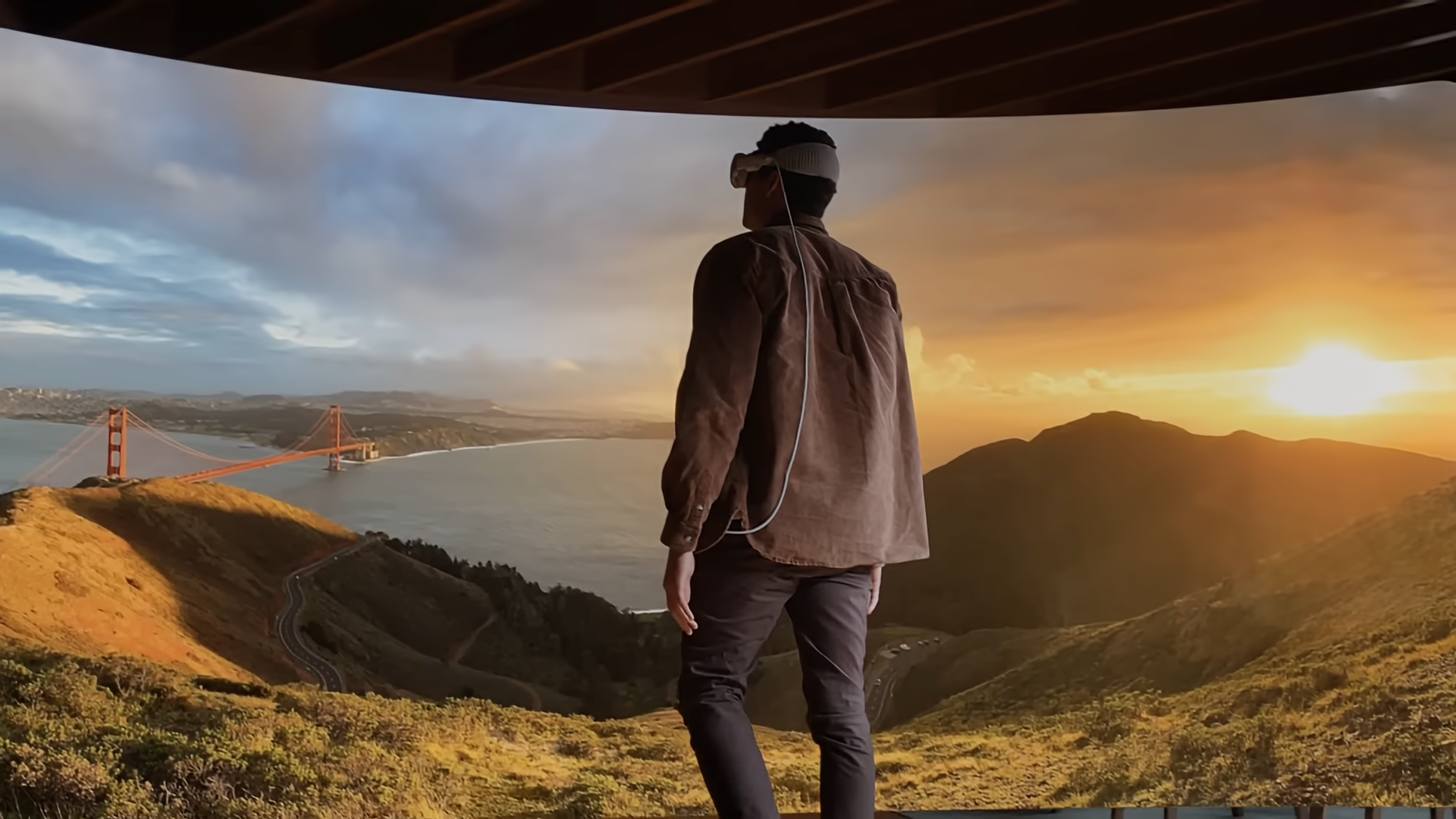
Apple reportedly cut full body tracking from Vision Pro “years ago”.
UPDATE November 1: Bloomberg’s Mark Gurman reports Apple is still working on full body tracking for Vision Pro, but it won’t be available at launch.
Vision Pro has downwards-facing cameras, announced as being for hand tracking. Last year The Information’s Wayne Ma reported that the headset – still only a rumor at the time – would also use these cameras to track your body, including your legs, but Apple didn’t announce this. The same report described the headset’s OpticID iris authentication system, which did turn out to be true.
Apple Vision Pro’s sensor array includes downwards cameras.
In a new report this week, Ma claims Apple actually “cut full body tracking from the Vision Pro several years ago because engineers couldn’t make it reliable enough”.
Apple was planning to use body tracking for health features and fitness, Ma writes. Movement data could have been analyzed over time to detect Parkinson’s disease, for example. Despite rumors of an Apple Fitness+ service for Vision Pro, Apple didn’t discuss fitness at all during the product’s lengthy announcement in June.
Meanwhile, Meta plans to add inside-out upper body tracking to Quest 3 in a software update in December, which will utilize Quest 3’s downwards-facing side cameras. This feature won’t track your legs, though, just everything above. Meta plans to release “Generative Legs” in the same update to estimate your legs with AI.
Quest 3’s upcoming inside-out upper body tracking feature.
Meta is considered a leader in computer vision and machine learning, which may have given it an advantage over Apple when it comes to shipping features like this. Alternatively, Apple executives may have a higher quality bar, one which they felt current technology doesn’t surpass yet.
Ma’s report doesn’t say whether Apple is still working on body tracking or has abandoned work on it until future hardware, however Apple has a long history of adding significant new software features to its products over time.

